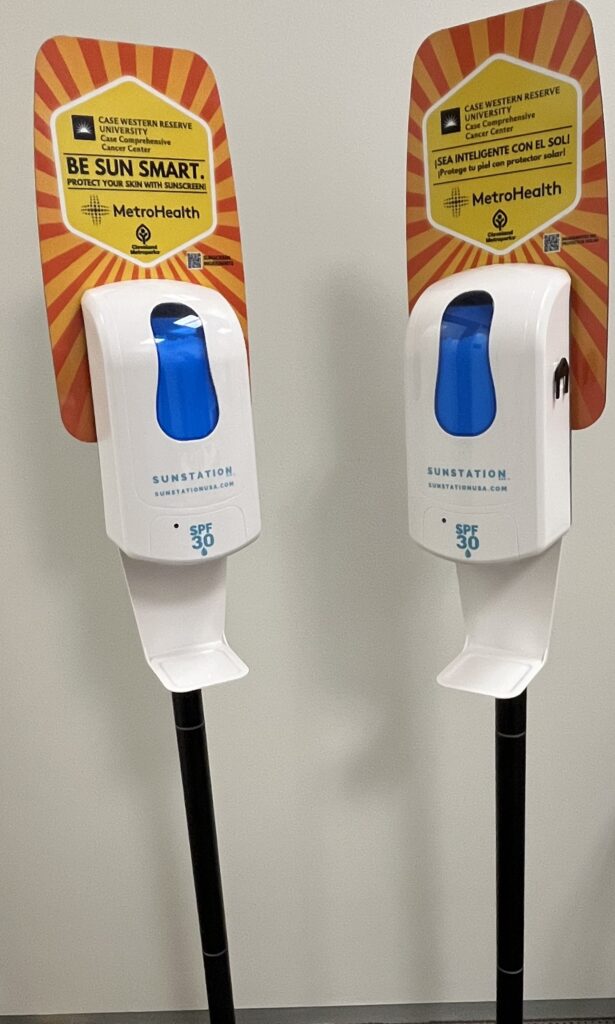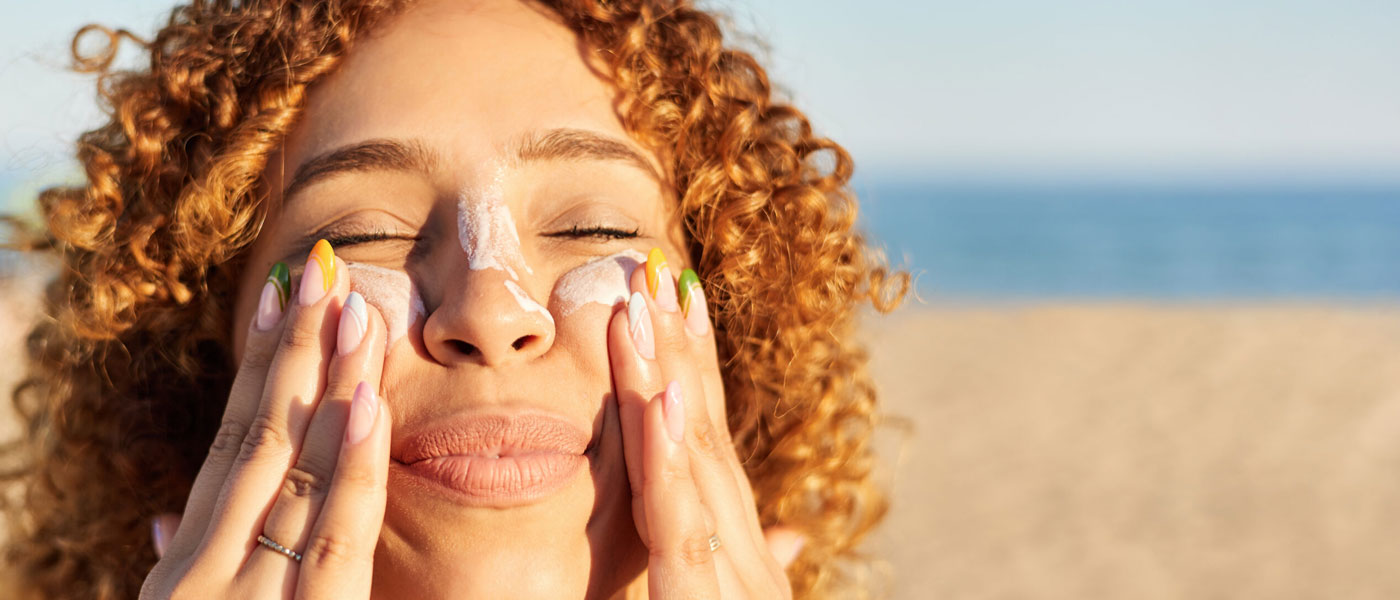Case Comprehensive Cancer Center (Case CCC) and Cleveland Metroparks have partnered to make it easier for people to prevent skin cancer. Free sunscreen will be available to all visitors at participating Cleveland Metroparks beaches and golf courses.
The project, “Be Sun Smart. Protect Your Skin with Sunscreen!” is supported by MetroHealth, the park district’s official healthcare sponsor.

Park visitors should look for the free-standing, no-touch dispensers featuring a bright orange and yellow sunburst with messaging in both Spanish and English. Plans are to install the dispensers at the following lakefront and lifeguard stations: Edgewater Beach, Huntington Beach, Euclid Beach, Wallace Lake, and Ledge Pool. Golf courses with dispensers include Big Met, Little Met, Ironwood, Manakiki, Mastick Woods, Seneca, Shawnee Hills, Sleepy Hollow, and Washington. The complimentary sunscreen has a sun protection factor of (SPF) 30. A QR code on each dispenser links to the sunscreen ingredients and Case CCC website for more information on melanoma and skin cancer protection.
According to Case CCC Director Gary Schwartz, a medical oncologist at both University Hospitals and Cleveland Clinic, vice dean of oncology, and the Gertrude Donnelly Hess MD Professor in Oncology Research at Case Western Reserve University School of Medicine, skin cancer is the most common, yet often most preventable, cancer in the United States and Ohio.
A report by Case CCC Population and Cancer Prevention member Johnie Rose indicates that age-adjusted rates for melanoma—the deadliest form of skin cancer—are 14% higher in northeast Ohio than nationally, and deaths caused by melanoma are almost 10% higher than the national average*.
“Melanoma is caused by the sun,” said Schwartz. “If you have light-colored skin, you are considered at high risk. The more sunburns a person has, the greater the risk of cancer. It is preventable by protecting one’s skin with either sunscreen or protective clothing. For a man with a balding head, a cap is essential.”
Schwartz said the increase in melanoma in the community was concerning.
“We do not know the exact reason for the increasing incidence in northeast Ohio, but not using sunscreen can be a culprit,” he said. “The liberal use of sunscreens is one of the few things we can do to prevent what can become an incurable disease.”
Skin cancer does not discriminate. African American men and women also can develop melanoma, especially on the parts of the body with less pigmentation, such as the palms of the hands and bottoms of the feet.
“One thing we can say for sure is that by using sunscreen regularly, the incidence of skin cancers— particularly melanoma—will decline,” Schwartz said. “This is true of every community.”
For more information, please contact Patty Zamora at patty.zamora@case.edu.

